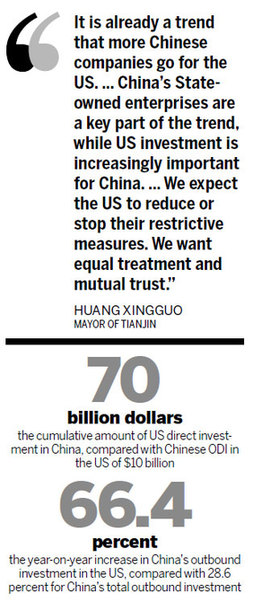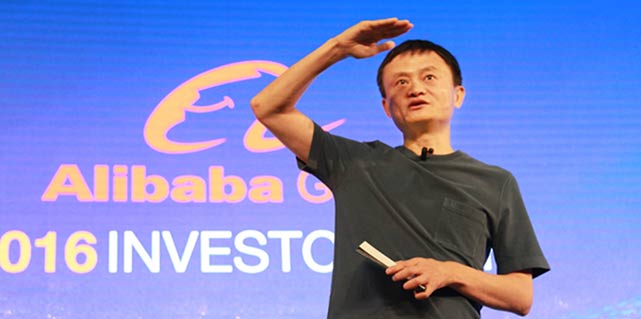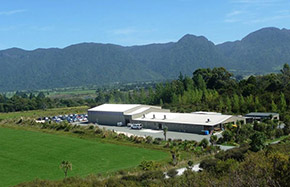US and Chinese local govts boost investment
By Ding Qingfen (China Daily) Updated: 2013-05-07 01:47Since the global financial crisis, there has been an upsurge in China's outbound direct investment. The nation became the fifth-largest investing nation worldwide in 2012.
China's ODI in the US saw a rapid increase, but the scale is still quite small. In 2012, China's outbound investment in the US gained as much as 66.4 percent from a year earlier, compared with a 28.6 percent growth for the nation's total during the same period.
In addition, various investment barriers set by the US government have continually dampened Chinese companies' confidence in going to the US.
Huang Xingguo, mayor of Tianjin, said State-owned enterprises are the big victims of the restrictive measures, as they are labeled in the US as a group that are strongly supported and influenced by the Chinese government.
|
|
"It is already a trend that more Chinese companies go for the US. ... China's State-owned enterprises are a key part of the trend, while US investment is increasingly important for China," Huang said.
But "they are independent entities in the market and have little connection with the central government when it comes to their outbound investment", he said.
"We expect the US to reduce or stop their restrictive measures. We want equal treatment and mutual trust."
Zhang Qingwei, governor of Hebei province, agreed.
"Companies in Hebei suffer from rising investment and trade protectionism in the US, but we strongly suggest dialogue and consultations to deal with the bilateral economic issues," he said.
Different opinions
As for US state governors, China needn't worry as Chinese investment is always welcomed in their states, and it is the US federal government that barred Chinese investors.
"There are different opinions between federal and state governments on the matter," said Branstad, the Iowa governor.
The federal government has its own political concerns when it launches foreign policies, but "we don't, and our focus is to stimulate the economy and create jobs", Branstad said.
"We have no control over such issues, but we will try to influence the federal government to build up the relationship," he added.
Brown, the California governor, agreed, saying that the US federal government has its own foreign policy, which has nothing to do with the state governments.
"We are totally open to China. ... It's about jobs, and it's about investment," he said.
Wisconsin Governor Scott Walker encouraged both sides to deal with the issue in a positive way, although he acknowledged the restrictions. "The best we can do is to continue this partnership," Walker said.
- Media digest on Xiongan New Area plan
- China's new economic district Xiongan punishes property speculators
- Prices at factory gate mixed in China
- Tourism presents 'positive answer' to US trade deficit with China: Industry leader
- Cat 'waiters' welcome guests in Beijing
- Port co-built with China fuels Pakistan's economic engine
- Over 11,000 firms listed on China's New Third Board
- China's infrastructure investment key to Africa's development needs: UN official



















